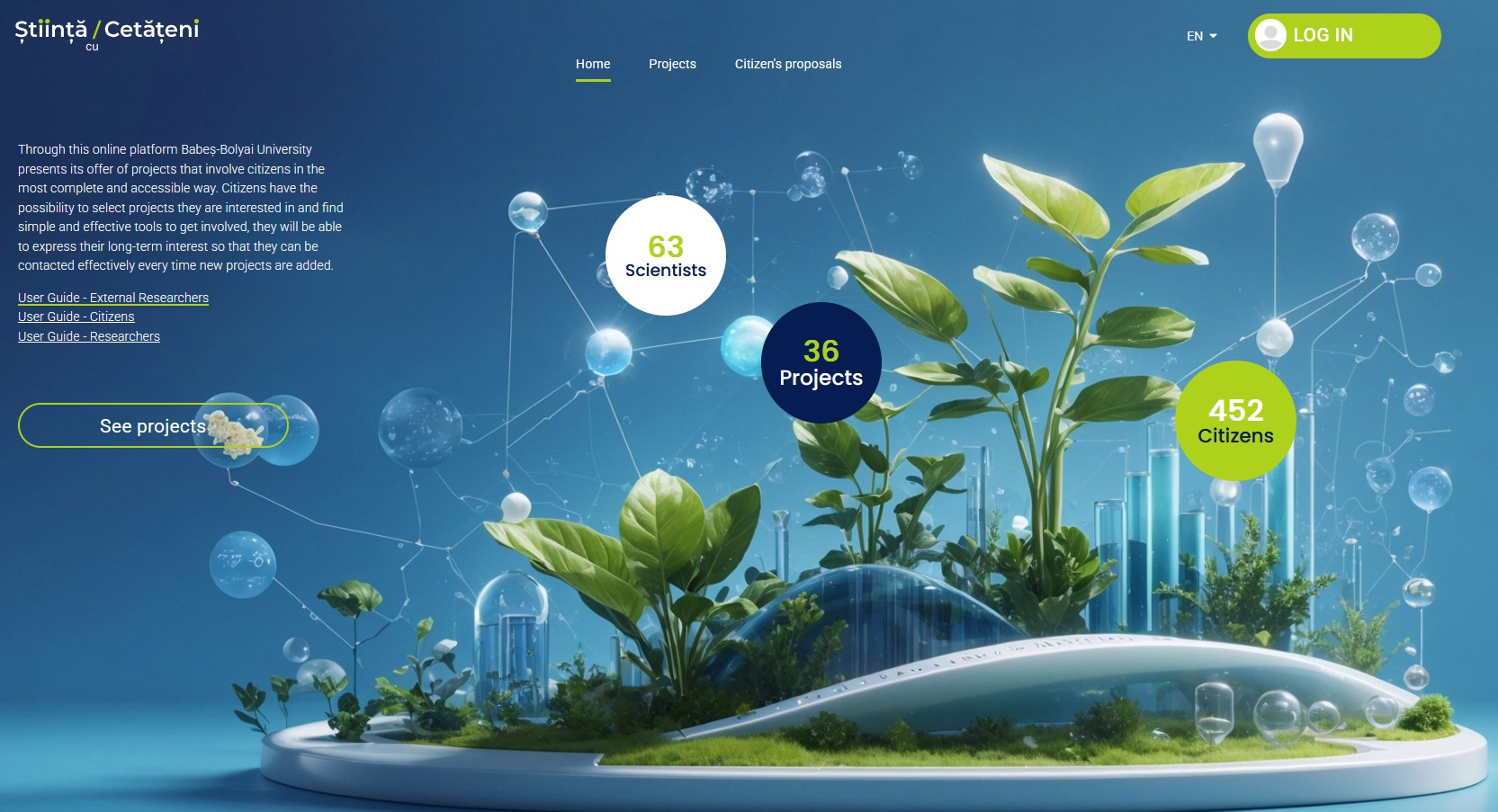
Building momentum within the Romanian citizen science initiative
Lucrina
Oct. 15, 2025, 11 a.m.
Dr. Lucrina Ștefănescu | ECS Ambassador for Romania
The first Romanian Citizen Science Platform: We launched the platform on 27 May 2024, which was positively received both by the Romanian academic community and by the international citizen science community, being presented as one of the 12 success stories in Europe („The impact of citizen science: 12 stories from across Europe”), published by the European Citizen Science Association (Schürz, Schaefer & Kieslinger, 2024).
Photo 1: The first page of the Romanian Citizen Science Platform
The platform expanded as the team continuously enhanced its functionality and interactivity, introducing features such as allowing citizens to propose their own projects, which could then be reviewed, validated, and potentially adopted as research initiatives by scientists.
Photo 2: The team that developed the platform
The Romanian Citizen Science Platform acknowledged by UNESCO: Our efforts were soon noticed first by the Romanian Executive Agency for Higher Education, Research, Development, and Innovation Funding (UEFISCDI), which included us in the country report regarding Open Science progress. Following this report, UNESCO acknowledged our activity by including the Romanian Citizen Science Platform in the UNESCO Open and Inclusive Science Hub. The UNESCO Open and Inclusive Science Hub is a global platform that promotes open and inclusive science, bringing together initiatives, good practices, and resources that facilitate free access to knowledge and collaboration between researchers, policymakers, and society. In this way, UNESCO acknowledges the efforts of Babeș-Bolyai University in the field of participatory science, highlighting the national platform developed by an IT company (.msg Systems Romania), which brings together 36 projects, 60 researchers, and over 430 citizens in an endeavour to democratize research and connect science with the real challenges of society.
Upscaling European Citizen Science Projects in Romania: Another notable achievement was the inclusion of Romania in the European citizen science Plastic Pirates initiative. Starting with the first Plastic Pirates campaign in May 2025, Romania is on the map of monitoring the plastic pollution, with potential of upscaling the initiative in many parts of the country via the program Green Week in Schools.
Funding Citizen Science in Romania: Through three successfully secured grants from the Ministry of Education and Research, the Romanian citizen science team provided funding for citizen science fellowships, supporting researchers in developing and implementing their small-scale citizen science projects.
The Citizen Science working group within the Office for Open Science also secured funding for international conference participation, enabling researchers to disseminate their results within the global citizen science community.
Promoting Citizen Science in Romania: Besides encouraging researchers to develop new participatory projects, we also try to promote them through social media and on-site events such as Researchers’ Night. The Office for Open Science and Babeș-Bolyai University initiated a bi-monthly campaign for the promotion of citizen science. Every two weeks, on Friday, we post a presentation video of one of the projects on the platform. During on-site events, we invite citizens to share their opinions on the project topics, encourage them to actively explore the platform, and motivate them to volunteer as contributors to ongoing or future citizen science initiatives.
Photo 3&4: European Researchers’ Night 2024 and 2025
Photo 5. European Researchers’ Night 2025
Building the Romanian Citizen Science Community: Both the platform and all the other activities that we conduct (dissemination events, training sessions, fellowship funding, workshop organization) aim to gather a strong community of citizen scientists and science communicators in Romania, which is essential for the long-term sustainability and impact of participatory research.
What’s next? We are planning to develop the resource tab of the platform, featuring materials and guidelines that are useful to both researchers and citizens. We also prepare some training sessions in English and Romanian to improve our skills, knowledge, and capacity to develop and conduct more projects that engage citizens.